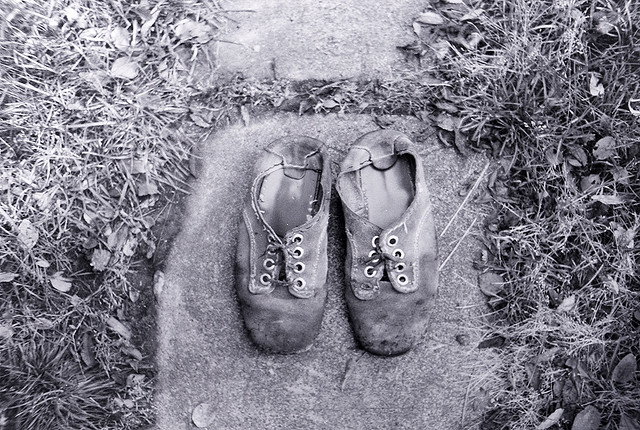Nobody Likes a Goody Two-Shoes #
Summary #
The term goody two-shoes is based on a children's story in which a poor orphan girl (Margery Meanwell) goes through life with only one shoe, but is eventually rewarded with a pair of shoes earning her the nickname Goody Two-Shoes. The phrase "goody two-shoes" refers to an excessively or annoyingly virtuous person, but has now come to include a connotation of insincerity (Source: Wikipedia).

Thanks for the offer, but I think I'll go barefoot.
(Photo: Northsky71 at Flickr)
Commentary #
A recent set of studies at Washington State University showed that not only are people who abuse a public good excluded from the group, but so are people who give too much toward the group, but use very little of that good. The fourth study in the set suggests that such behavior "is seen by some as establishing an undesirable behavior standard and by others as a rule breaker" (Parks & Stone, 2010). Regardless of the perception, people wanted this unselfish person removed from the group.
I'm assuming that "establishing an undesirable behavior standard" means something like "setting the bar too high" or "making me look bad." Alternatively, people might assume mixed motives and become wary of such behavior.
Meta #
Do you remember a situation in which you felt someone was being too unselfish? How did you react? Have you ever noticed you were being excluded after you behaved unselfishly? What could you do differently?
See Also #
-
Goody Two-Shoes at Project Gutenberg for the full text of the 1766 edition of the classic children's tale.
-
The History of Little Goody Two-Shoes at Wikipedia
-
Do-Gooders Get Voted Off Island First at ScienceDaily for a longer discussion.
-
Parks, C. D., & Stone, A. B. (2010). The desire to expel unselfish members from the group. Journal of Personality and Social Psychology, 99(2), 303-310.